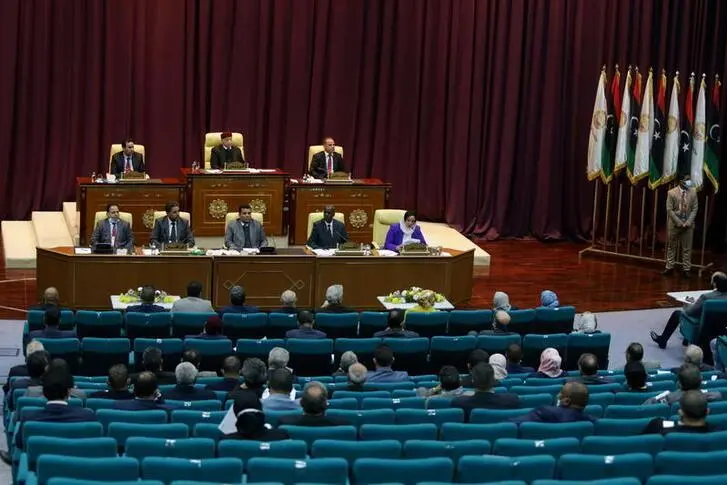PHOTO
BENGHAZI, Libya - The energy committee of Libya's eastern-based parliament on Thursday rejected a government move to sack the head of National Oil Corporation (NOC), deepening a power struggle for control of the energy firm whose exports fund the entire state.
Libya's political crisis this year has pitted parliament, based in the east, against Prime Minister Abdulhamid al-Dbeibah and his Government of National Unity (GNU), which is based in the capital Tripoli in the west.
That standoff now risks undermining the political independence of state-owned NOC, the only internationally accepted exporter of oil from the North African nation.
It was not clear whether the tussle for control of NOC would affect an ongoing blockade by eastern factions of Libyan oil production or whether it would affect other aspects of the company's operations.
Dbeibah issued a decision on Tuesday to replace NOC chief Mustafa Sanalla, along with the board, and to appoint former central bank governor Farhat Bengdara in his place.
Sanalla rejected the move, saying Dbeibah had no authority because the GNU mandate had expired, an argument the parliament used when it appointed a new government in March under Fathi Bashagha. Dbeibah has refused to cede power.
U.S. Libya ambassador Richard Norland wrote on Twitter on Thursday that "we are following with deep concern developments surrounding NOC", adding that the producer had remained politically independent and technically competent under Sanalla.
The energy committee of the parliament said in a statement it recognised the NOC board under Sanalla as legitimate and accused Dbeibah of "suspicious political deals".
Analysts say Dbeibah's appointment of Bengdara may be an effort to woo eastern commander Khalifa Haftar, a longstanding ally of the parliament, and avert another attempt to install Bashagha and his rival administration in Tripoli by force.
Sanalla and GNU Oil Minister Mohamed Oun have feuded for months and the ministry said on Thursday that it confirmed the decision to appoint a new board, which it would supervise.
The political standoff over control of government led to a blockade this year by factions aligned with Haftar who have demanded that Dbeibah quit power in favour of Bashagha.
The blockade has taken 850,000 barrels per day off the market but NOC said this week it was resuming exports from two ports and hoped to restart production soon at some other facilities.
(Reporting by Ayman al-Warfali; Writing by Angus McDowall; Editing by Edmund Blair)





















